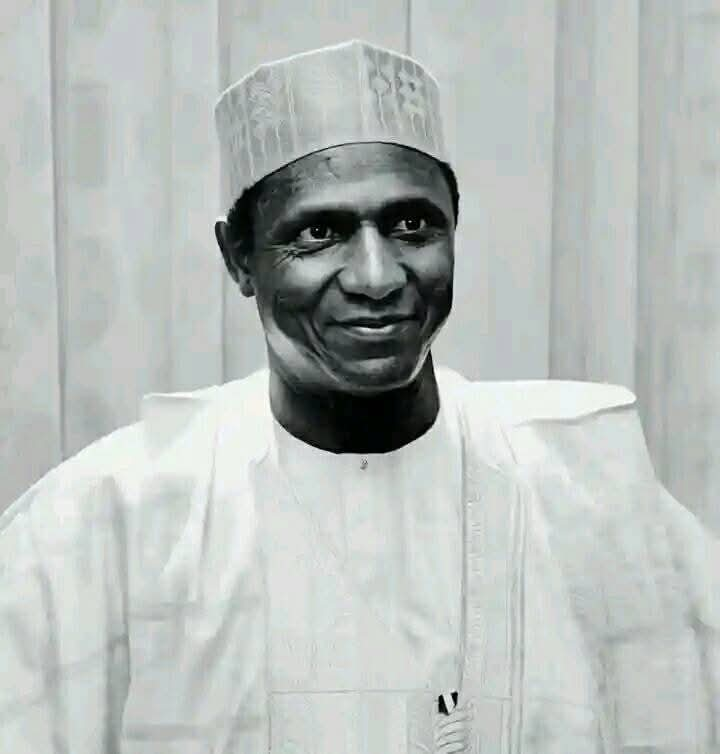Yar’Adua: A Legacy of Quiet Reforms and Integrity

By Zaharaddee Ishaq Abubakar | Katsina Times
Late President Umaru Musa Yar’Adua, Nigeria’s 13th Head of State, remains a symbol of modesty, integrity, and a deep commitment to democratic values. Born on August 16, 1951, in Katsina State, Yar’Adua came from a politically influential family. His father, Alhaji Musa Yar’Adua, was a minister in the First Republic and a strong figure in northern politics. His elder brother, the late General Shehu Musa Yar’Adua, also served as Nigeria’s Chief of Staff under the Obasanjo military regime in the 1970s.
Yar’Adua began his early education in Katsina, later attending the prestigious Barewa College in Zaria. He proceeded to Ahmadu Bello University (ABU), Zaria, where he earned a Bachelor’s degree in Chemistry in 1975 and a Master’s in Environmental Science. Before fully venturing into politics, Yar’Adua worked in the education and private sectors, including teaching and managing industries such as Sambo Farms and Transnational Construction Company.
His political journey officially took shape in the 1990s. In 1999, he emerged as Governor of Katsina State under the platform of the People’s Democratic Party (PDP). During his two-term tenure (1999–2007), Yar’Adua was known for his transparency and fiscal discipline. His government was one of the few that regularly published its state accounts, earning praise from civil society and international observers.
In 2007, following the end of President Olusegun Obasanjo’s tenure, Yar’Adua was declared winner of the presidential election, though the process was heavily criticized for irregularities. In a rare show of honesty, Yar’Adua admitted the election was flawed and promised to initiate electoral reforms—an unprecedented move in Nigerian political history.
His administration launched the Seven-Point Agenda, a framework for national development that prioritized power and energy, food security, wealth creation, transport, land reforms, education, and security. Although progress was slow, especially due to his health challenges, Yar’Adua made significant steps toward Niger Delta peace through the Amnesty Programme for militants—ending years of violence and restoring oil production.
Throughout his presidency, Yar’Adua battled a chronic illness, later revealed as pericarditis. In late 2009, he left Nigeria for Saudi Arabia for medical treatment without formally transferring power to his Vice President, Goodluck Jonathan, which triggered a constitutional crisis. The National Assembly later invoked the “doctrine of necessity” in February 2010, naming Jonathan Acting President.
On May 5, 2010, Umaru Musa Yar’Adua passed away after receiving prolonged medical treatment in Saudi Arabia. He was buried in his hometown of Katsina on May 6, 2010, according to Islamic rites. His death marked the end of a leadership era many Nigerians viewed as quiet but principled.
Yar’Adua is remembered as a leader who, despite his short time in power, demonstrated rare humility and sincerity. He was widely regarded as incorruptible and deeply committed to reform. His calm demeanour and measured leadership style stood in contrast to the often turbulent nature of Nigerian politics.
More than a decade after his death, Umaru Musa Yar’Adua remains a symbol of what a people-centered, morally guided leadership could achieve in Nigeria’s democratic journey.

